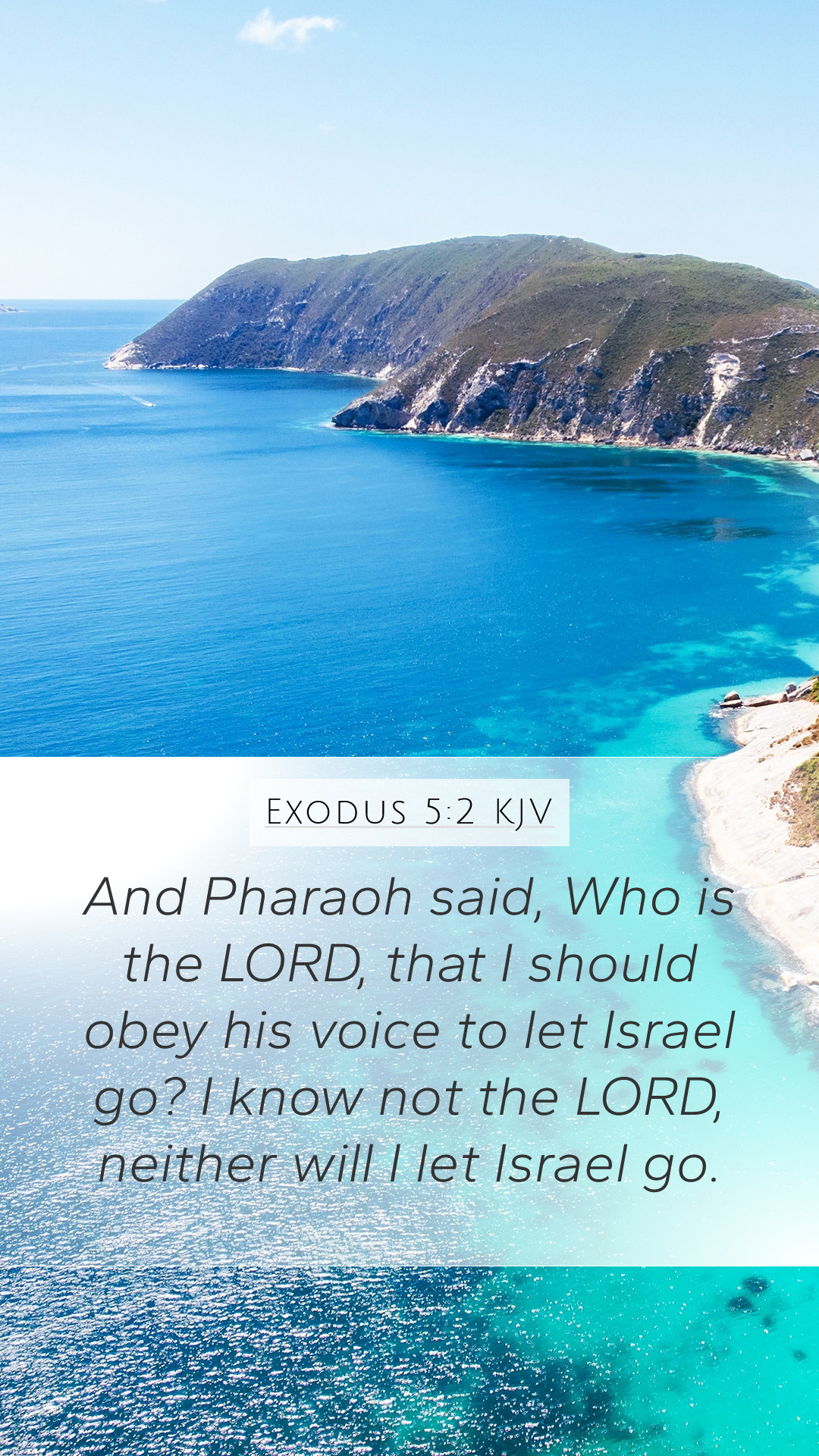Understanding Exodus 5:2
Exodus 5:2 states, "And Pharaoh said, Who is the LORD, that I should obey his voice to let Israel go? I know not the LORD, neither will I let Israel go." This verse provides significant insights into Pharaoh's attitude towards God and His commands, which is essential for understanding the entire narrative of the Exodus. Below is a comprehensive analysis combining insights from Matthew Henry, Albert Barnes, and Adam Clarke to aid in your exploration of Bible verse meanings and interpretations.
Verse Explanation
In this statement, Pharaoh expresses his defiance and disbelief regarding the God of Israel. His rhetorical question, "Who is the LORD?", highlights his ignorance and rejection of God's authority. This reflects a broader theme in Scripture about human pride and resistance against divine authority.
Insights from Commentaries
-
Matthew Henry’s Commentary:
Henry emphasizes Pharaoh's arrogance and how it symbolizes the hardened heart that refuses to acknowledge God's sovereignty. He points out that Pharaoh's dismissive attitude reveals a conscious choice to disregard God's voice, which leads to dire consequences not only for himself but for Egypt as a whole.
-
Albert Barnes’ Notes:
Barnes highlights how Pharaoh’s ignorance of the Lord’s identity reflects a typical characteristic of those in power who operate without reverence for divine authority. He interprets this verse as an illustration of the challenges the Israelites faced in their struggle for liberation, as even powerful leaders can be oblivious to God's workings.
-
Adam Clarke’s Commentary:
Clarke notes that Pharaoh's dismissive response serves as a reminder of the dangers of pride and self-sufficiency. He suggests that Pharaoh's refusal to acknowledge God sets a precedent for others who might challenge divine commands. Clarke also alludes to the significance of obedience to God's will throughout the Exodus narrative.
Historical Context
Understanding the historical context of this verse is critical. At this time, the Israelites were enslaved in Egypt, and Moses had been sent by God to demand their freedom. Pharaoh's response signifies the tension between divine will and imperial power, illustrating the struggle between God's purpose and the human inclination to resist it.
Theological Implications
This verse encapsulates a key theological principle: the recognition of God's sovereignty. Pharaoh’s failure to recognize God foreshadows his ultimate downfall and emphasizes the importance of humility before divine authority. It serves as a reminder to readers about the necessity of acknowledging God's power in their lives.
Application to Daily Life
Exodus 5:2 challenges us to reflect on our own attitudes toward God. Like Pharaoh, individuals may sometimes act as if they are the authorities in their own lives, ignoring divine guidance. This verse invites believers to embrace a humble submission to God's will and to heed His voice in all matters.
Cross References
- Exodus 3:13-14 - God reveals His name to Moses.
- Romans 1:20 - God's invisible attributes are clearly perceived.
- Isaiah 45:9 - Woe to those who strive with their Maker.
Conclusion
In summary, Exodus 5:2 is a critical reflection on the attitude of the worldly authority towards divine command. Understanding this verse through comprehensive Biblical exegesis deepens the meaning of Bible verses and illustrates the significance of Biblical narratives.
As you delve into this verse and its implications, consider utilizing Bible study tools and resources to explore more about God's sovereignty and human response through various Bible study lessons and guides.


